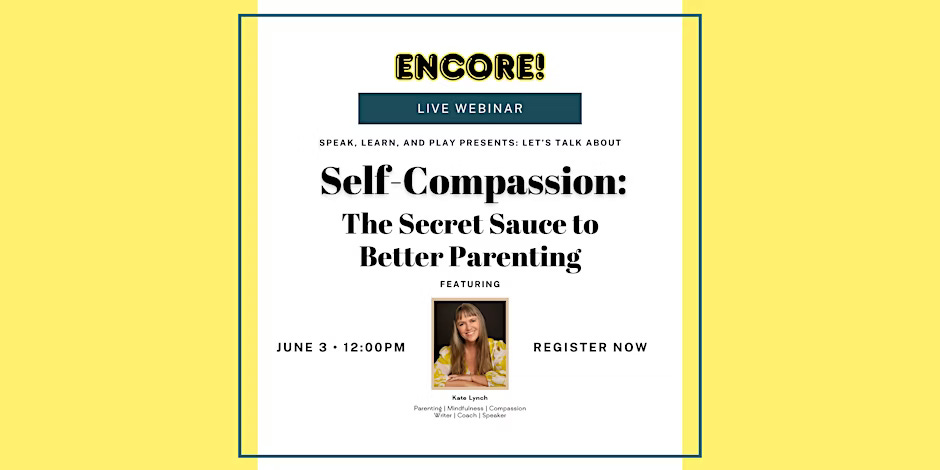Invite to Self-Compassion: The Secret Sauce to Better Parenting
🗓️ You're invited to a free live webinar on Tuesday, June 3 at 12:00pm EDT where you'll learn 5 potential outcomes of practicing self-compassion - and how to do it.
You’ll get my usual newsletter on Sunday (re: IEP meetings), but I’m dropping in real quick today because this is timely:
Do you feel like parenting is harder than you ever expected? I’ve been there. And now I know I’m not the only one thinking that I must be a crappy parent.
We feel like it’s all our fault, that we’re bad parents. But there’s no way to win. We’re supposed to know what to do with our neurodivergent kids, but we don’t, so we stay stuck repeating the same strategies that never worked. We avoid learning new parenting tools. If we’re stuck, our doubt, disappointment, resentment and frustration can keep getting bigger and bigger.
I can’t overstate the importance of self-compassion to help you turn that guilt around so you can move forward and start making positive changes in your parenting - and all of your relationships.
It can help you get unstuck and give yourself the grace you deserve.
No matter how stuck you feel, if you're willing to try something new for a few minutes a day, I know I can teach you this pathway to return to self-compassion when judgment and doubt pop up.
This is an invitation to join me in my special interest (because of the impact it’s had my own life)!
Hosted by
of the wonderful organization, Speak, Learn and Play, I’m facilitating a live webinar on how self-compassion can improve your parenting.Discover simple, mindful strategies to:
reduce stress by getting to its root,
build deeper connections, and
show up for your kids with more patience and presence.
Here’s the link to sign up for free!
Join us live, bring your questions, and let’s have a rich, real-time conversation about how self-compassion can change the way we parent.
🗓️ Tuesday, June 3 at 12:00pm EDT
Live & Interactive. Come ready to participate!
5 potential outcomes of practicing self-compassion:
Reduced frustration: Yelling happens when we don’t know what else to do. Resentment happens when our boundaries are repeatedly trampled. If you’re kind to yourself and get clear on what you need, it will get easier to learn new communication strategies, and to lovingly hold your boundaries.
Growth mindset: Willingness to make mistakes is literally how we learn. When your inner critic starts up, you’ll have simple steps to remind you that we’re all human. We’re all learning. And none of us is a finished product.
Confidence: What if you trusted yourself to navigate any crisis that comes up in your family? Not because you expect yourself to have the answers, but because you’re okay with asking for help. You know you’re not the only parent who has ever had this problem, and you’re capable of gathering support
Connection: We love our kids, we want to smooth their paths, and we don’t always say or do the right thing. There will be times we need to repair with our kids. They want to be close to us, and they’re forgiving. Authentic connection will bring us closer to our kids.
Contentment: Self-compassion isn’t the same as self-indulgence. When we’re accepting of ourselves, we’ll be more willing to see ourselves clearly, and we’ll free up energy to take action.
I hope you’ll join us 🗓️ Tuesday, June 3 at 12:00pm EDT. Sign up here:





